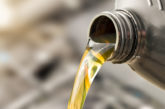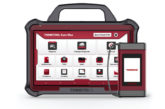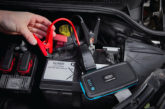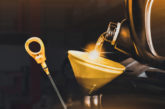
Glyn Atkinson, Chartered Practioner for Atkinson Safety Services, reveals why health and safety legislation means garage owners need to stay on top of major equipment maintenance.
Not to be mistaken (as can sometimes be the case) with the name of an old hit record (Lola) by The Kinks, L.O.L.E.R is the acronym by which the Lifting Operations & Lifting Equipment Regulations (1999) is better known.
Q. WHAT DOES THIS REGULATION MEAN TO A GARAGE OR MOT STATION OWNER?
In simple terms, it means that the HSE want to ensure that all lifting equipment that you use on your premises, or for roadside repairs away from your base of work, is safe. For this to be the case it has to have been regularly checked prior to use, inspected on a regular timely basis, maintained with an individual equipment register log (record sheet) and annually given a thorough examination and test for safe loading.
So, whether it’s a vehicle ramp, car jack, bottle jack or similar devices, you – as the responsible person – MUST ensure that all lifting aids and major equipment are safe to use at all times.
If any item of lifting equipment has been reported as faulty or defective, it is vital that it is immediately withdrawn from use before any potential accident may occur. Faulty equipment should be labelled clearly as such, with an employee warning notice prominently placed to stop further use until repairs have been completed.
Untested or poorly maintained lifting equipment has the potential to cost you large amounts of money – in potential fines, capital investment for repairs or replacement, and loss of earnings from being unable to put vehicles through the MOT test or repairs.
Q. WHAT WOULD IT DO TO YOUR REPUTATION IF AN EMPLOYEE WAS SERIOUSLY INJURED WHILE PUTTING A VEHICLE ON/OFF ANY OF YOUR LIFTING EQUIPMENT?
Bad news can spread quickly in regard to work-related accidents or dangerous occurrences. If reports reach local papers or TV stations then it can seriously damage your reputation in the town, village or city where you are based.
Q. HOW CAN YOU PREVENT LIFTING EQUIPMENT COSTING YOU FINES AND LOSS OF INCOMING WORK?First, collate all of your lifting equipment into maintenance files – put down the maker, model, serial number and find the manufacturer’s technical manual that was no doubt thrown into the bottom drawer upon the installer leaving your premises.
Look through that manual and find out the recommended timescales for regular maintenance on that equipment. Furthermore, have a check through the installation and commissioning document for ramps and ensure that a LOLER certificate was issued, lasting for a 12 month period. Once this period has elapsed, the test has to be repeated and a new certificate issued.
Q. WHO CAN DO THESE TESTS LOCALLY FOR YOU?
You could let your fingers do the walking and search under ‘lifting equipment testers’ in your Yellow Pages or Thomson’s directories, or you can search the web.
Prices vary, but you should also research your local engineering companies for advice and referrals to their lifting equipment test suppliers. You probably test and service their vehicles anyway, so a call for a good referral will be easy!
To avoid getting caught out by an unexpected HSE Inspection, we recommend that you call in a safety professional first to give you the right advice and documentation that can prevent potential prosecutions or fines. If you’d like to find out more details about how your business can receive a FREE consultation from Atkinson Safety Services phone: 01472 313979, email: glyn@atkinsonsafetyservices.co.uk.









